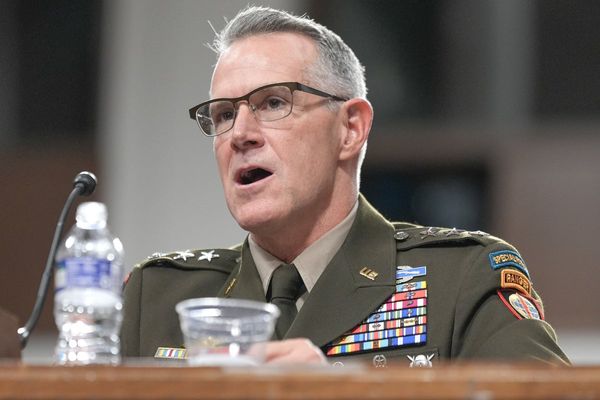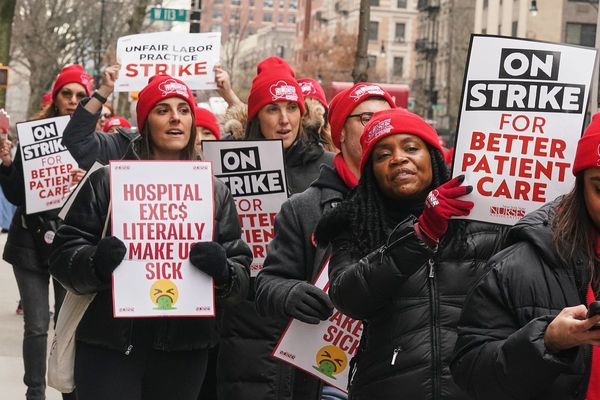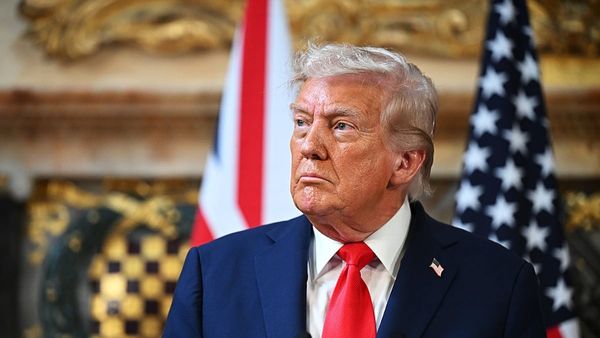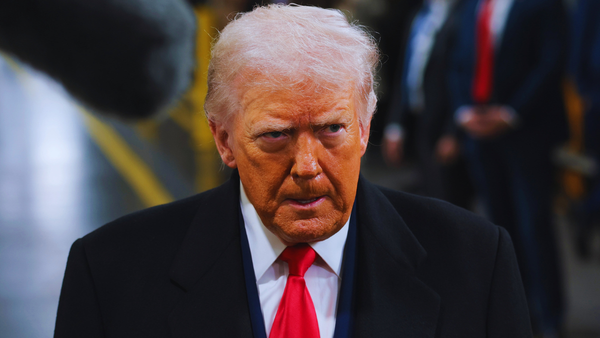
Employers in New South Wales will still be able to require workers to be vaccinated against Covid-19 in high-risk settings, despite the removal of vaccine mandates, according to one of the nation’s leading health and safety lawyers.
From 6pm on Friday, public health orders requiring key workplaces to be vaccinated will be lifted, and based instead on risk assessments under occupational workplace health and safety rules. Orders requiring aged care and disability workers to be vaccinated will remain in force, however.
Michael Tooma, managing partner of law firm Clyde & Co described the move as a sensible next step in the management of the pandemic but said it wouldn’t mean the end of vaccination requirements in workplaces.
“As we moved into the more normalised, living with the virus stage in the pandemic, this was always going to be something that was going to happen but really, it’s business as usual,” he said.
“Vaccination will remain an effective control against the spread of the virus in workplaces where there is a higher risk of transmission.”
Tooma said under workplace health and safety laws, employers have a duty of care to maintain a safe workplace for their employees as well as contractors, subcontractors and visitors. In terms of Covid-19, this obligation requires employers to take all reasonably practicable steps to minimise the risk of exposure to in the workplace.
Employers are required to conduct a risk assessment, which factors in the nature of the workplace and the type of work being undertaken, and implement control measures to minimise risk.
“For businesses that have a high customer interaction, businesses that have high density in their enclosed workplace or low ventilation, or businesses that have dealings with vulnerable communities – aged care, childcare and immune compromised people – maintained vaccination is one of the controls you would need to have,” Tooma said.
He said vaccination was a “passive control” compared to measures such as social distancing, hygiene, cleaning and personal protective equipment.
“The more passive the control the better, we say, because you’re not then relying on people remembering to do things or ensuring people are trained and instructed in certain procedures,” Tooma said.
Several companies have already introduced workplace mandatory vaccination requirements, including Aldi, Coles, Commonwealth Bank, Qantas, SPC, Telstra, Virgin Australia, Westpac and Woolworths.
A move by BHP to make Covid vaccinations mandatory at its Mt Arthur coalmine in the Hunter Valley was found to be unreasonable by the Fair Work Commission, however, as the mining giant failed to reasonably consult with its employees about the policy.
Bernie Smith, the secretary for the Shop, Distributive and Allied Employees’ Association, said the union was working with companies that have introduced their own vaccination requirements.
“Our first preference was that our frontline workers have priority access, which would have probably minimised the need for mandates, but that’s not been the case across the board,” he said.
“Then when it comes to mandates, our view is that it should be mandated by the government rather than by companies but we’ve had to deal with the fact that some companies have mandated and have the legal capacity to do that.”
Smith said the union encouraged its members to follow the science, with vaccines providing the best protection from the virus.
Unvaccinated teachers encouraged to return
It comes as NSW premier, Dominic Perrottet, encouraged unvaccinated teachers back into classrooms when the mandate ends.
“I do want to encourage teachers [who left during the pandemic] to come back,” he told an estimates hearing on Thursday.
“We put those mandates in place not to discriminate. We put those mandates in place to keep people safe.
“Where we sit today, we’re in a very strong position to shift to more of an occupational health and safety approach.”
However, Tooma said he expected vaccines would be required for teachers.
“It comes down to the risk assessment. How many kids are in the classroom? How close are they to the teacher? Are the students vaccinated? Is there anyone immune compromised in the classroom, how about their family members?” he said.
“In that environment a proper risk assessment is likely to result in vaccination being the appropriate control, but it’s a case by case. There might be a small school that has a small number of students and a large classroom and it’s not an issue but for most schools, it is likely to be.”
Meanwhile, in Victoria, mandates will remain in place for the time being as authorities work with individual industries in the coming months to “transition” away from mandates.
“Some industries will no doubt lift mandates and allow their workforces to attend work without a vaccination requirement, but some of them may well land on a policy that has an ongoing mandate but that should be worked out industry by industry,” the state’s chief health officer, Brett Sutton, said in announcing the easing of restrictions on Wednesday.
Australian Medical Association vice-president, Dr Chris Moy, said Victoria had likely chosen to maintain worker mandates to protect its struggling healthcare system and boost vaccination rates.
“In health, you’d rather a government that somewhat over-corrects than make a reckless decision,” he said.
“I think in Victoria they are really trying to push vaccinations because overall they are still concerned about making sure that they have a greater buffer if things get a bit hairier, coming into winter. And Victoria has gone through a lot more and is struggling with its health system.”







